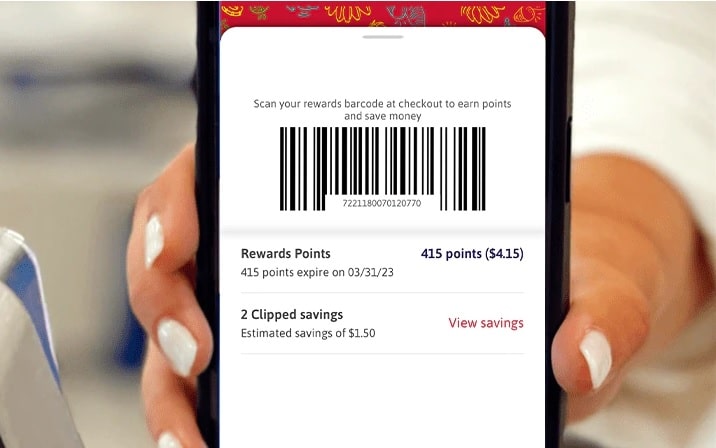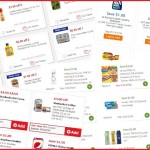
Which would you rather have, a coupon that gives you a discount on a product right now, or points you can accumulate to redeem for a completely free product later?
According to the authors of a research report – pick the coupon.
“Comparing the effectiveness of rewards and individually targeted coupons in loyalty programs” appears in a recent edition of the Journal of Retailing. In it, two German researchers at Humboldt University of Berlin’s School of Business and Economics compare the two types of benefits most frequently offered by grocery loyalty programs, “points to redeem for free products, and individually targeted coupons.”
They found that coupons bring more long-term benefits to both shoppers and retailers – though loyalty points aren’t so bad either.
The researchers studied a year’s worth of transactions at “a leading German grocery retailer,” whose loyalty program offers both points and personalized coupons, and followed that up with shopping simulations to assess “the effectiveness and profitability of loyalty program point redemptions and coupons.”
It stands to reason that loyalty point redemptions for free products are more lucrative in the moment – getting something for free is better than redeeming a coupon for a modest discount, after all. The researchers also found that loyalty point redemptions are more lucrative for retailers, in that they prompt customers to spend more during their shopping trip.
But coupons, the research found, are more profitable for both shoppers and retailers in the long run, as those modest discounts really add up. The study’s authors found that customers redeemed loyalty points on only 2.5% of all shopping trips, while they used personalized coupons on 18.5% of shopping trips. “Point redemptions have a stronger effect but are less frequent,” the study found, “resulting in a larger absolute impact of coupons on sales” – and on customers’ savings.
So “offering individually targeted coupons more efficiently increases trip frequency,” and encourages customers to shop more in order to save more. And “higher incremental revenues and lower costs result in more profitability” for retailers. So the researchers suggest that retailers focus on offering personalized, relevant coupons to help “maximize customers’ expenditures.”
That said, “allowing customers to redeem loyalty program points in exchange for free grocery products is a valid alternative to offering indirect rewards,” the study acknowledges. “Point redemptions may be less profitable than individually targeted coupons,” but they still help increase the number of shopping trips and the amount of groceries purchased per trip. To help offset any profits lost by allowing customers to redeem points for free products, the researchers suggest even more coupons, to help encourage customers to shop and buy more.
As a result, “we conclude that loyalty program point redemptions and individually targeted coupons are complementary,” the study declares. Coupons may be better than points, but why not offer both?
One interesting sidebar in the research involved the way in which coupons, and communications about loyalty rewards, are delivered to customers. Both can help shoppers save, but at what cost to their sanity? “Many retailers have recognized the risk of overwhelming customers with too many communications, so they seek methods to enable customers to control the flow of marketing information” the study notes. “For example, the drugstore retailer CVS lets customers decide when to request information through in-store kiosks and mobile phone apps.”
The German retailer they studied “has installed self-service kiosk systems at the store entrance, equipped with barcode scanners, touchscreens, and printers, similar to CVS’s ExtraCare Coupon Center.” Customers can also use the kiosks to redeem their loyalty points for free products.
This, the study found, makes shoppers happier – and more profitable, too. Kiosks “offer anonymity to customers, such that they can alleviate privacy concerns, lower barriers to entry, and establish trust,” which makes customers more likely to shop and spend at that store. Bombard them with too many messages about potential savings, and retailers could discourage them from taking advantage of any of those savings at all.
So, bottom line, “in their efforts to encourage customers to engage frequently with loyalty programs,” the study declares, retailers “should turn to individually targeted coupons, more so than loyalty program point redemptions.” The occasional free product isn’t a bad thing, but it’s the coupons that will keep shoppers coming back. And these days, with prices on the rise, we’ll take all the savings we can get.
Image source: Winn-Dixie















